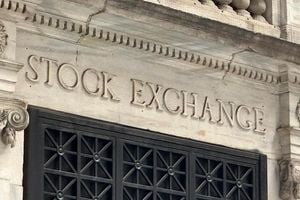President Trump is poised to implement significant tariffs starting Saturday, February 1, 2025, with 25% levies on imports from Canada and Mexico, and 10% on those from China. This move, part of his administration's broader trade strategy, carries substantial potential consequences for the U.S. housing market.
The impending tariff rates, which will impact construction materials and other goods, are raising alarm among economists who fear inflationary repercussions. According to the Associated Press, "Higher tariffs are inflationary and likely to lead to higher mortgage rates for longer." The uncertainty surrounding these tariffs leads to much speculation about their effects on mortgage rates and the broader economy.
With many building supplies imported from Canada, the proposed tariffs come at a time when these materials represent a significant part of the construction industry’s foundation. When asked about the tariffs, experts noted, "A substantial portion of U.S. building materials are imported from Canada," highlighting the economic ties between the two nations. With the imposition of these tariffs, the prices of imported goods, including drywall, lumber, and other construction essentials, are set to increase, causing home construction expenses to balloon.
Higher material costs typically translate to elevated home prices, which could deter potential homebuyers just as the housing market is beginning to regain its footing. Economic analysts warn this could exacerbate the existing housing supply shortage. Observers of the market are cautiously watching how changes to construction costs may influence the availability of affordable housing, which is already under pressure from rising demand.
Inflation is already on many people's minds, with the Fed anticipating how these tariffs may push prices up. Whether mortgage rates increase depends on how closely implemented policies align with market expectations. The AP remarks, "Whether mortgage rates increase now depends on how the implemented policy compares to what markets were expecting the president to do." This uncertainty could affect not just homebuyers but also investors watching the bond market closely.
The Fed, which has dealt with inflation rates spiritedly, may face dilemmas balancing these new tariffs with its policies aimed at stimulating growth. Unlike what happened when tariffs were previously introduced, the Fed may not be able to simply overlook this inflation spike if prices rise rapidly following the tariffs. This complicates their objectives, especially as high interest rates have already begun cooling the economy. The question remains: how will the Fed respond to yet another inflationary trigger?
Compounding concerns are the potential retaliatory tariffs from Canada and Mexico, which could shrink economic growth. Amid already high interest rates, which have been curtailing demand, any significant economic retaliation could lead us closer to a stagflation scenario — where high inflation runs parallel with stagnant economic growth.
It's evident: as the U.S. commerce with Canada and Mexico totals over $1.8 trillion, the consequences of tariffs issued against these major trading partners could reshape economic landscapes significantly. Analysts fear the potential fallout, not just from inflation, but also from economic sluggishness emerges as possible peril on the horizon.
With the situation still developing, homeowners and potential buyers are left to grapple with the impending consequences of tariffs. The next few months could see sharp increases across the board, from construction expenses to completed housing prices, which could deter many from entering the market.
Looking forward, the impact of these tariffs extends beyond the immediate price increases. The potential for decreased housing demand looms large, especially if the labor market falters, heightening concerns about job security and economic resilience. Homeowners must prepare for adjustments as economic conditions shift due to tariffs and the looming questions surrounding market stability.
So as the tariffs are set to roll out, stakeholders are feeling the pressure, waiting to see how these changes might affect them. From increased purchasing costs for materials to broader economic impacts, the housing market faces multiple challenges moving forward, signaling the possibility of significant shifts on the horizon.



